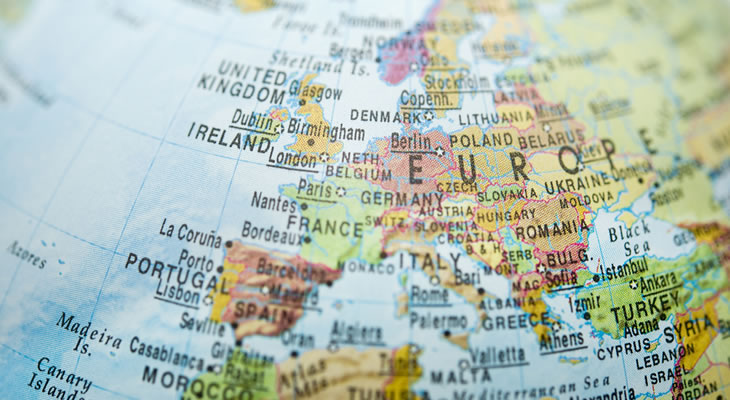Pound Sterling Euro (GBP/EUR) Exchange Rate Edges Lower despite Severe German Recession
UPDATE: The Pound Sterling Euro (GBP/EUR) exchange rate edged -0.3% lower, leaving the pairing trading at around €1.1467.
According to an economic report from Germany’s Bundesbank on Monday, the country is in a severe recession.
Added to this, Germany’s central bank added that recovery is not likely to be quick as many coronavirus-restrictions may stay in place for an extended period of time.
The bloc’s largest economy has come to a standstill due to the pandemic, even though discussions to ease restrictions are likely over the coming weeks.
In it’s monthly report the Bundesbank noted:
‘Substantial restrictions are likely to remain until a medical solution such as vaccination is available. For this reason, a rapid and strong economic recovery currently seems unlikely.’
Pound Sterling Euro (GBP/EUR) Exchange Rate Falls as Global Growth Fears Boost Safe-Havens
The Pound Sterling Euro (GBP/EUR) exchange rate slumped by around -0.4% this morning, leaving the pairing trading at around €1.1453.
Sterling was hit today by increased fears about global growth, which also left oil prices dampened on Monday.
Commenting on the lower levels of risk appetite, Ray Attrill, head of FX at National Australia Bank in Sydney said:
‘The market wasn’t expecting quite such a short timeframe for the potential relaxation of restriction levels.
‘However the risk sentiment today is not quite as positive as it was. There is still a degree of safe haven support and a level of demand for US Dollar that is going to transcend whether or not we are in risk-on or risk-off mode.’
Coronavirus remained the main focus for investors, and on Sunday a senior British minister stated the country was not considering lifting the current lockdown.
GBP remained under pressure as the death toll in the UK exceeded 16,000, and according to Chris Weston, Pepperstone’s head of research:
‘We are coming into the eye of the storm. And as the market starts to focus less on virus headlines, or at least will be less sensitive to better news, we will focus more on the lasting effects on the economy and solvency.’
The demand for safe-haven currencies provided the Euro with an upswing of support as it was seen as a safer bet compared to the Pound.
Coronavirus Freezes UK Economic Activity
The single currency was able to make gains against the Pound as data revealed the coronavirus pandemic caused UK activity to freeze.
Economists now forecast a deep global recession, which also dampened sentiment at the start of this week’s session.
Today, the British Retail Consortium (BRC) showed the number of people leaving their homes in order to shop plummeted by -83%.
This followed earlier data which showed retail sales spending fell by more than a quarter, leaving GBP under pressure.
Today’s figures reinforce the decline in sales is going to be even sharper than anticipated. Commenting on this, BRC chief executive, Helen Dickinson said:
‘Footfall dropped in early March, as many people chose to stay at home and reduce the risk of catching coronavirus.
‘This downwards trajectory was accelerated by the government’s decision to put the UK on lockdown.’
Separately, property website Rightmove noted it was unable to provide meaningful house price data due to the number of new homes being listed collapsing.
Pound Euro Outlook: Coronavirus Pandemic Will Continue to Dominate Headlines
Looking ahead to Tuesday, the Pound (GBP) could suffer further losses against the Euro (EUR) following the release of employment statistics.
If March’s claimant count change jumps higher than expected in March, it will weigh on Sterling as it reflects the initial impact of the coronavirus pandemic on the country’s economy.
Meanwhile, the single currency could edge lower following the release of ZEW’s Economic Sentiment Index.
If the data reveals German sentiment has slumped further than expected, the Pound Euro (GBP/EUR) exchange rate will be left flat.


Comments are closed.